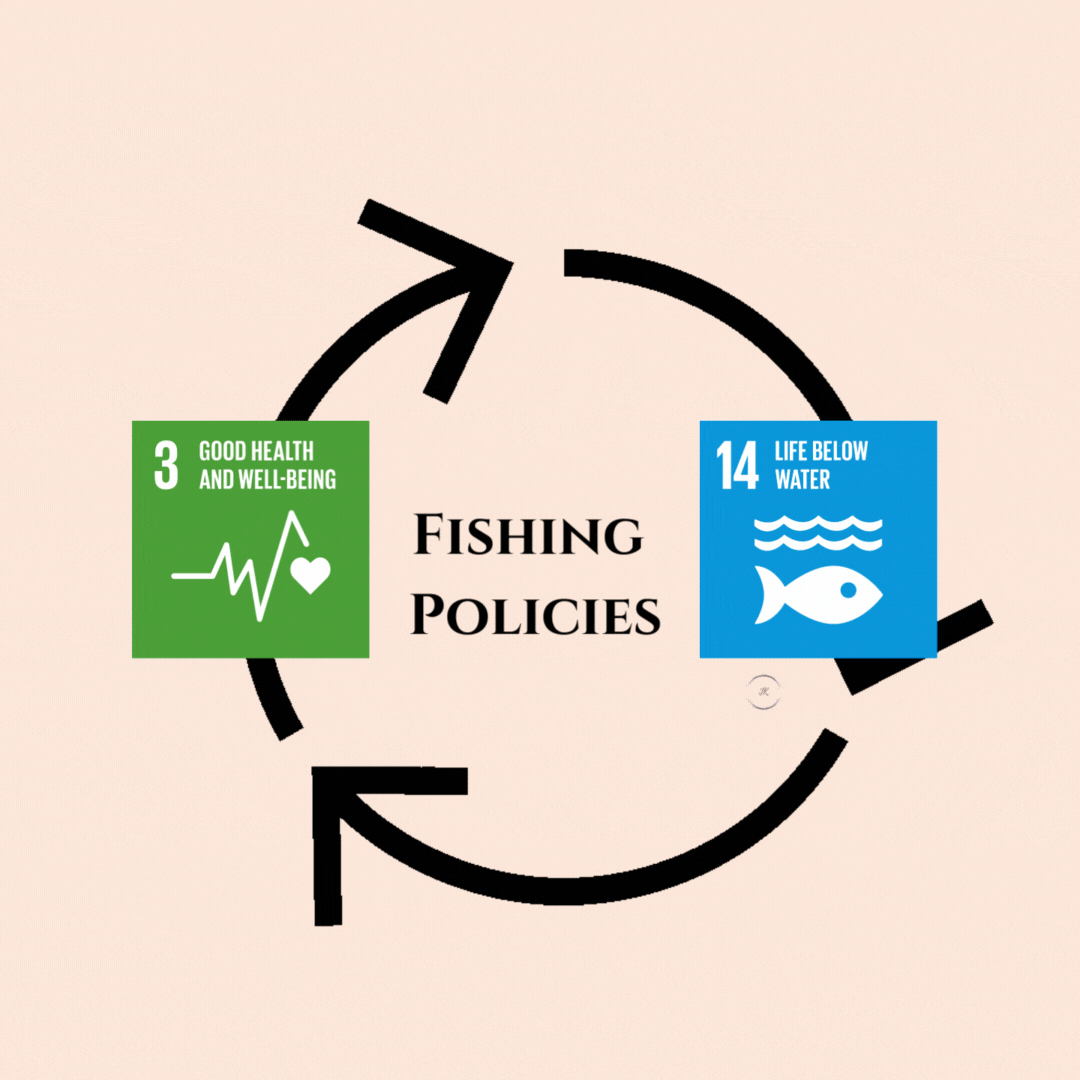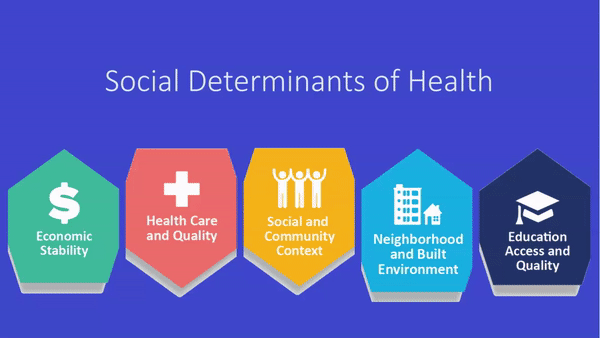Overfishing and its Impact on Health
Interconnectedness of SDG 3 and SDG 14
This month I'm going to talk about a public health issue impacting the African continent. As I am currently a Junior Professional Consultant with UNICEF HQ, I am going to relate this back to the Sustainable Development Goals. The posts this month will focus on SDG 14 "Life Below Land" and SDG 3 "Good Health and Well-Being."
The World Health Organization (WHO) defines social determinants of health (SDOH) as “the non-medical factors that influence health outcomes...These forces and systems include economic policies and systems, development agendas, social norms, social policies, and political systems.” Some of these social determinants are in the figure below
Social Determinants of Health
Image Attribution: Skbanergt, CC BY-SA 4.0 <https://creativecommons.org/licenses/by-sa/4.0>, via Wikimedia Commons
This focuses less on the biomedical approach to health and includes non-medical factors that impact health. A lot of what impacts our health is actually policies and our environment. Overfishing is a result of policies, generally, government subsidies, that encourage fishing without considering the environmental impacts when fishing occurs at a rate that does not allow fish to replenish. Some of these subsidies include cheaper fuel, gear, and shipping vessels which encourage very large shipping vessels in the water. This negatively impacts the environment, economy, and income of individuals whose livelihoods are reliant on fishing. And thus, by negatively impacting the SDOH of the environment, economy, and income, it negatively impacts health and nutrition. Income has a direct impact on health as in many countries, low income and income inequality are indicators of poor health as you cannot afford healthcare services. This post will define the issue of overfishing with a focus on West Africa.
So, what is overfishing?
The environmental-defense fund (EDF) defines overfishing as “catching too many fish at once, so the breeding population becomes too depleted to recover.” The practice of “[o]verfishing often goes hand in hand with wasteful types of commercial fishing” as there are a lot of unwanted fish and animals that are discarded. One of the detrimental and destructive methods used for fishing is bottom trawlers. Bottom trawlers are not just limited to foreign investors, this has been used by local people as well according to GreenPeace, a nonprofit that shares environmental issues. This is an issue as no one knows how much fishing occurs legally and illegally which is leading to an environmental disaster. It is important to reduce fishing level activities to ensure that fish can increase to sustainable levels.
According to the World Economic Forum, Africa has 35 coastal areas and has some of the world’s worst regions affected by illegal fishing. According to a Greenpeace report, West Africa’s waters are very popular as they are “among the most fertile in the world.” The report also mentions that these waters provide a wide variety of fish and the biggest markets outside West Africa for seafood are in China and Europe. West Africa, in particular, is witnessing the negative impacts of overfishing on the ecosystem, on food insecurity and livelihoods, as well as the economic impact on those whose livelihoods rely on the fishing industry. The World Economic Forum also estimates that West Africa alone loses $1.3 billion a year due to illegal fishing, which is a loss of a significant portion that could be contributing to national revenues. Hence, there is less money that governments have for projects such as education, and health which could help improve SDOH and promote positive health outcomes. This figure is only for West Africa, meaning that the number is probably much higher for the entire continent as “Somalia alone loses $300 million annually to pirate fishing”.
Protecting our continent's ocean wealth can also have benefits to population health.
Below are some videos focusing on overfishing in West Africa:
Thank you to Awa D., School of Oriental Studies and African Studies, University of London for sharing this issue with me.




